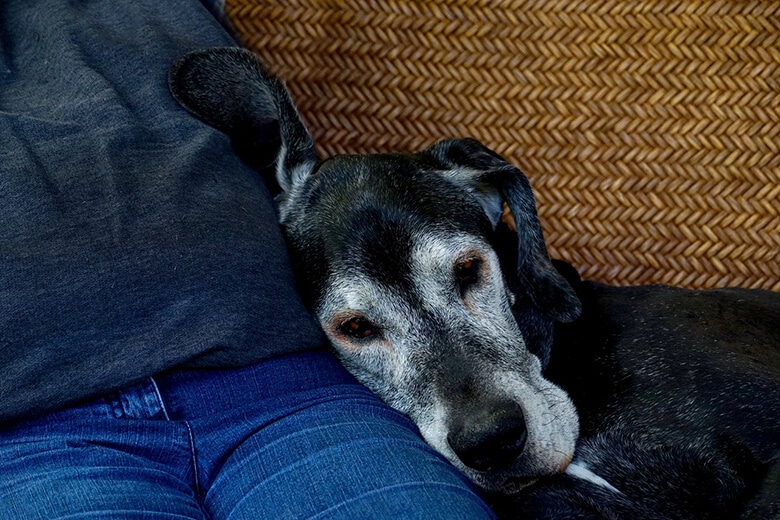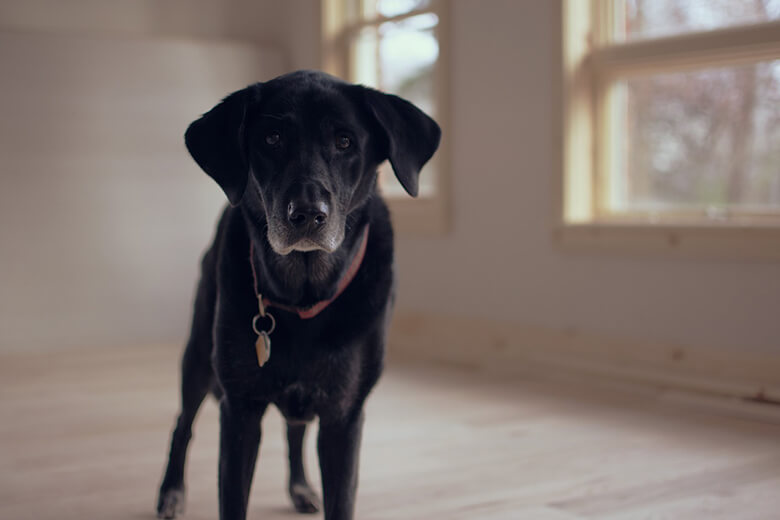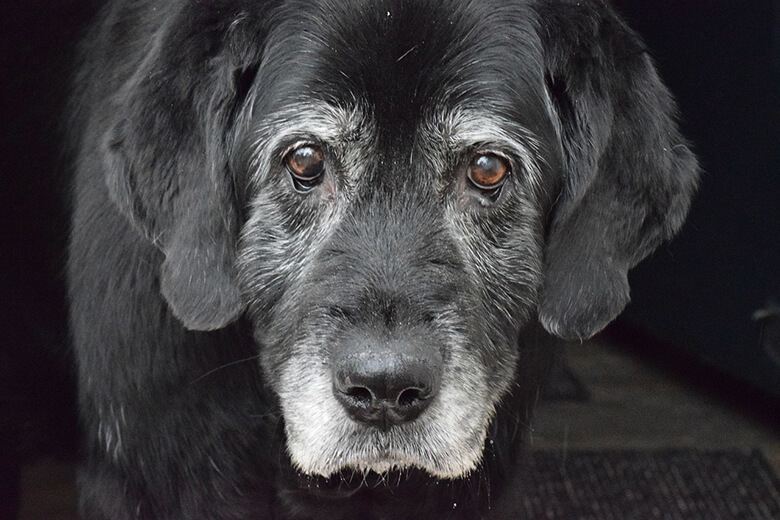- January 22, 2023
- No Comment
- 12 minutes read
What’s Going on With Your Senior Dog: Is it Behavioral or Medical? – This Dog's Life

See the Retirement Home Where Senior Dogs Get to Live Out Their Golden Years
7 Of Our Favorite Pride Essentials for Your Dog
From Ticks to Fleas, Here Are DIY Sprays to Protect Your Dog Outside
The Top Googled Health Issues for Dogs — and How to Treat Them
How to Handle Your Dog-Aggressive Canine on Walks
How to Soothe Your Dog’s Separation Anxiety When You Return to Work With Music and Videos
This Nurse Turned Sculptor Helps People Heal…
Meet the Artist Creating These Incredibly Lifelike Miniature Dog Sculptures
Meet Bunny, the ‘Talking’ Dog Sensation
What to Look for in a Rug That Will Survive Your Dog
Have you’ve noticed your older dog acting strangely? Is he keeping you up at night? Is she having accidents on your favorite rug? Is he suddenly aggressive?
If you assume that behavioral changes can be chalked up to old age, and there’s nothing you can do about, you may be missing an opportunity to catch something medical in the early stages. After all, your dog can’t tell you what’s wrong. And if the problem is medically-based, there may be ways to make your canine gramps more comfortable.
There are certain behaviors senior dogs demonstrate that are markers for medical conditions. Cognitive function, hearing, eyesight and agility all decline as your dog ages. It’s important to be aware of the changes in your dog and advocate for him.
In the case of an older dog that, for example, starts following you from room to room in a way that is noticeably different, it may be either a change in social behavior or a sign of a cognitive problem like dementia, says Dr. Christopher Pachel, board-certified veterinary behaviorist and owner of the Animal Behavior Clinic in Portland, Oregon.
Dr. Christopher Pachel
Or your dog may be seeking you out for comfort. “If the dog is experiencing any degree of pain or discomfort, they may be more likely to engage in actual attention-seeking behavior or may seek out proximity or interaction with the owner,” Dr. Pachel explains. “It’s a self-soothing sort of mechanism.”
Related: A Terminally Ill Shelter Dog Gets to Live Out His Life in Home, Thanks to Woman Looking for ‘Oldest, Hardest to Adopt Dog’
The veterinarian should look for any other supporting evidence of a medical issue in any of these behavior patterns, says Dr. Pachel. “We look for evidence in behavior that allows us to either confirm or deny whether or not we think any medical concerns are underlying that issue,” he adds.
Behavioral: Does your dog start crying at night? Did you notice him facing the wrong way in an elevator? Or seemingly trapped behind furniture? Has been having accidents in the house? A trainer can show you how to help your senior, but these are all signs of a medical condition.
Medical: Here are the primary signs of cognitive dysfunction syndrome:
If your vet determines that your dog has dementia, there are drugs that can help such as Anipryl® (selegiline hydrochloride) and others, including supplements. A combination of drugs and behavior therapy is most effective.
Related: A Deaf 11-Year-Old Dog Who Lived on the Streets, Finally Finds a Place to Rest His Head
In a senior dog, this may indicate more than anxiety about his main person leaving, or it may point to a loss of functions like hearing or seeing.
Behavior: Older dogs have a decreased ability to cope with changes. “A lot of dogs really seem to depend on routine for their own sense of security,” notes Dr. Pachel.
Medical: As dogs age, they may lose some of their sensory input, Dr. Pachel explains. “They’re not seeing as well, or they’re not hearing as well as they used to. So some of that information that they’ve been depending on is missing. And it can create a sense of disorientation even if their brain is working okay,” he says. Older dogs are not as equipped to deal with that sense of disorientation because of that missing information.
If a normally friendly, unaggressive older dog starts exhibiting uncommon aggressive behavior, it’s important to figure out what’s going on, both for the dog and for the other dogs or people living with that dog. Aggression can be addressed by medical or behavioral intervention: Too many senior dogs end up in shelters because of sudden aggression without any attempt to alleviate the problem.
Behavior: New stresses may make a senior dog irritable or aggressive. Things like a new marriage or a divorce, a new baby or a new family member coming to live in the home, a death, or a new pet, all can be a factor in aggression in senior dogs. This may be attributed to the fact that a senior dog is weaker, less assertive or suffering from anxiety and sensitivity as she ages.
Medical: Any condition that causes pain can result in aggression. This includes conditions like arthritis or dental disease. A loss of hearing or vision may cause a senior dog to become easily startled, and a loss of mobility makes it harder to get away from the source.
Related: Terminally-Ill Puppy Shakes Things Up at Senior Dog Home
Sleep patterns often change when dogs get older — seniors usually sleep more. They tire more easily from simple exercise such as daily walks. A change in sleep habits can also indicate medical issues as simple as the need for a middle of the night bathroom break — or something more serious.
Behavioral: Some senior dogs may not be able to sleep through the night. They may sleep more during the day, so they are up during the night, or may be more sensitive to outside noises that happen overnight and startle them. Figuring out what is triggering your senior may help you find a way to keep him calm overnight.
Medical: Signs such as crying, anxiety, pacing, whining or barking can indicate cognitive problems. Senior dogs may suddenly not know where they are. Dementia in dogs follows a “sundowner syndrome” like humans with Alzheimer’s disease. Fading light is a trigger, and symptoms get worse as it gets darker. Dementia, along with loss of sight and/or vision, causes anxiety in older dogs, which may interfere with sleep. Pain from joint disease can also be the cause.
Senior pooches may start to have problems holding it during the day and night, or they forget where it’s appropriate to go (such as on a piddle pad) or how to ask to go out. It’s not, however, because they’re “acting out,” as many assume, or they’re angry. Never punish a dog for an accident. If it’s behavioral, it will make the problem worse; if it’s medical, it will only make your dog fear you and increase anxiety.
Behavioral: Anxiety may be responsible for senior accidents. If older dogs are fearful about something in their environment, they may lose control. Or they may simply need an extra potty break. Walking them right before bedtime may help, but you may have to plan for a quick middle of the night dash to the curb (or a quick visit to the backyard). Solutions also include diapers and belly bands. The answer, however, is not to lock your dog in a crate all night. He isn’t soiling out of spite and being crated won’t help him to hold it.
Medical: Causes include urinary tract infections, kidney disease, incontinence, diabetes, Cushing’s disease, colitis, inflammatory bowel disease, bladder stones, inflammation of the prostate, liver disease, medical conditions that cause pain and dementia. Dogs with cognitive issues may be unable to remember basic housetraining.
Other senior behavioral changes include increased vocalizations, noise phobias, changes in learned behavior, destructive behavior and compulsive behavior. It’s vital to note when these behaviors occur to help your veterinarian get to the root of the problem and work on a solution. It’s cruel and inhumane to dump a dog in a shelter because you don’t want to deal with his senior issues. Senior dogs are at the highest risk for euthanasia in the overcrowded shelter system. Your canine grandma or grandpa has given you a lifetime of unconditional love. It’s time for you to give some back.
Related: Give Your Pup a Lift: Check Out the Best Dog Stairs and Dog Ramps
Jillian Blume is a New York City–based writer whose feature articles have appeared in magazines, newspapers, and websites including the New York Observer, Marie Claire, Self, City Realty, the ASPCA, Petful.com, Best Friends Animal Society, The Mayor’s Alliance for NYC’s Animals, The Pet Gazette, and many others.
FOR YOU
Join themailinglist
document.getElementById( “ak_js_1” ).setAttribute( “value”, ( new Date() ).getTime() );
Subscribe to get special offers, free giveaways, and once-in-a-lifetime deals
This Dog’s Life showcases a curated collection of the best dog brands from around the world, while also providing advice and a community for dog parents.
[email protected]
Email us at [email protected] or call us at 347-696-1548.
Subscribe to get special offers, free giveaways, and once-in-a-lifetime deals
document.getElementById( “ak_js_2” ).setAttribute( “value”, ( new Date() ).getTime() );

